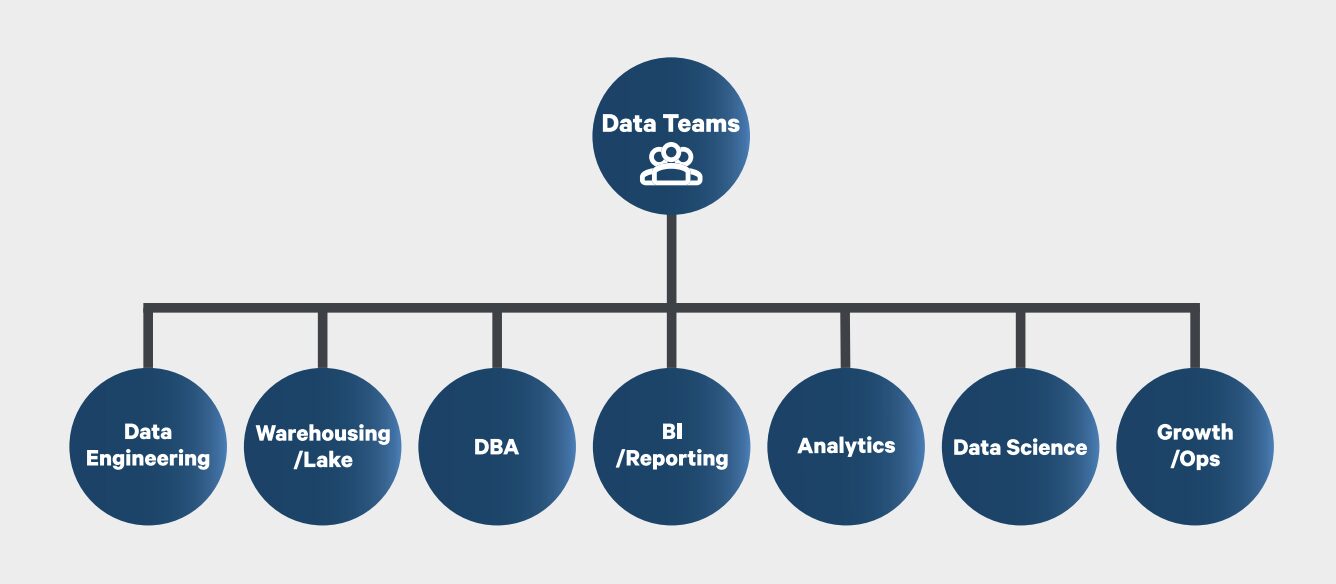The 6 Functions of a Data Team

- Blog
- BI Best Practices
- Business Perspectives
If you’ve been paying attention, you probably already understand the business value and the benefits of building a data team at your company. But what functions should they actually perform? In large companies, each of these tasks may be performed…
If you’ve been paying attention, you probably already understand the business value and the benefits of building a data team at your company. But what functions should they actually perform?
In large companies, each of these tasks may be performed by teams, in smaller organizations, by individuals. Startups may find individuals performing multiple tasks — with some functions supplemented by technologies or software.

1. Data Engineering
This function is in charge of platform stability and data access. Data engineers make sure that your data pipelines are running and that data teams have access to the hardware they need. If you have a global team, they will make sure that the information is shared around the world.
2. Warehousing/Lake
Data warehousing is concerned with storing business logic and preparing data for consumption.
Warehousing entails aggregating all of the systems of record into a singular location or group of locations (a data warehouse). This function is concerned with definitions and access.
3. DBA
Database Administrators (DBAs) plan, maintain and manage a company’s databases. This role commonly sits under traditional IT. Many of the tasks performed by DBAs are beginning to be replaced by automated or managed services (such as AWS Aurora or AWS Athena).
4. Analytics Team/BI/Reporting
This function takes information in the warehouse and uses it to create interactive charts and dashboards for the line-of-business owners to use in reporting and light diagnostic investigations.
5. Data Science
This function often sits within the data or engineering team. They work to extend the products, perhaps by working on advanced features like search, recommendation or matching algorithms.
6. Growth/Ops
The growth team or function will take data from all levels (existing dashboards, warehoused tables, raw data) and spin up projects for the individual lines of business to increase revenue or efficiency.
At larger organizations there may be more functions (such as data governance, compliance or data documentation), but these are the core functions of a data teams. Historically, these different roles were spread throughout the organization, rolling up to IT, finance or strategy. But increasingly, organizations are seeing value in bringing these functions together under the single umbrella of the data team.
In the age of data-driven decisions, your decisions are only as good as your data team. Learn more about the steps your business can take to grow and empower your data team, and the benefits you will realize as result in our new guide, Building & Empowering Your Data Team.




